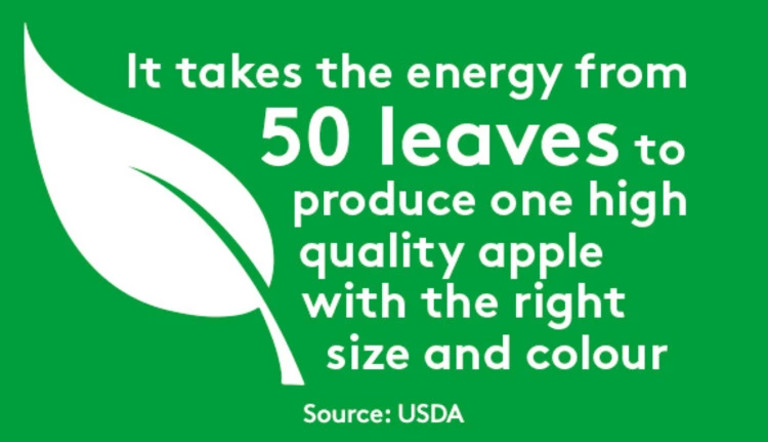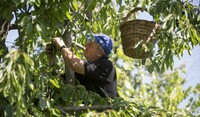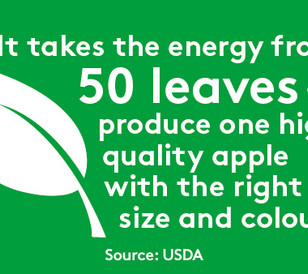
Apple Facts

History
Malus pumila, is a deciduous tree in the rose family best known for its sweet, pomaceous fruit, the apple. The name Malus domestica is also now used as a common name for the apple tree.
Apples have been grown as food for thousands of years.
The tree originated in Central Asia, where its wild ancestor, Malus sieversii still grows.
The uncultivated tree stands up to 12m tall.
Modern production
Trees used in commercial production have been bred to restrict growth to between 1.5m to 4m.
Commercial apple cultivars are propagated by grafting the upper part of the plant, known as the scion, on to the rootstock.
Apple trees take four to five years from seed to produce their first fruit. The first two years are spent growing at the nursery before they are planted in the commercial orchard. It then takes a further two to three years before a commercial crop is taken by the apple grower.
There are more than 7,500 known cultivars of apples, bred for various tastes and uses, including cooking, eating raw, soft drinks and alcoholic cider production.
Apples are harvested by hand with workers able to pick 1.5 tonnes a day.
Apples are picked in the autumn and hi-tech storage systems, using high humidity, low oxygen and controlled carbon dioxide levels, maintain fruit freshness to allow them to be marketed for many months after harvest.
The fruit
It takes the energy from 50 leaves to produce one high quality apple with the right size and colour apple.
A typical ripe commercial apple is between 6cm to 10cm in diameter and weighs from 85g to 400g.
For every 100g the apple provides:
Energy 218 kJ (52 kcal)
Carbohydrates 13.8g
Sugars 10.4g
Dietary fibre 2.4 g (two thirds of which is in the peel).
Apples also contain important vitamins and minerals such as manganese, phosphorus, potassium sodium and zinc, these are vital for the function of human muscle and organs and help to boost the immune system.
Production
Worldwide apple production for 2016/2017 is forecast to be 77.17 million tonnes, according to US Department of Agriculture figures.
China accounts for almost half of the total global production.
The total area grown is approximately 5m ha worldwide.
Consumption
The average worldwide consumption of apples is approximately 9kg per head, according to FAOStat.
The highest world apple consumption per head was 9.40 kg in 2011 and the lowest on record was 4.29kg in 1961.
Image Gallery
Related Articles

Partnership that Grows Together: ADAMA Romania’s Collaborative Edge

How the Cazado® Launch Embodies Value Innovation

